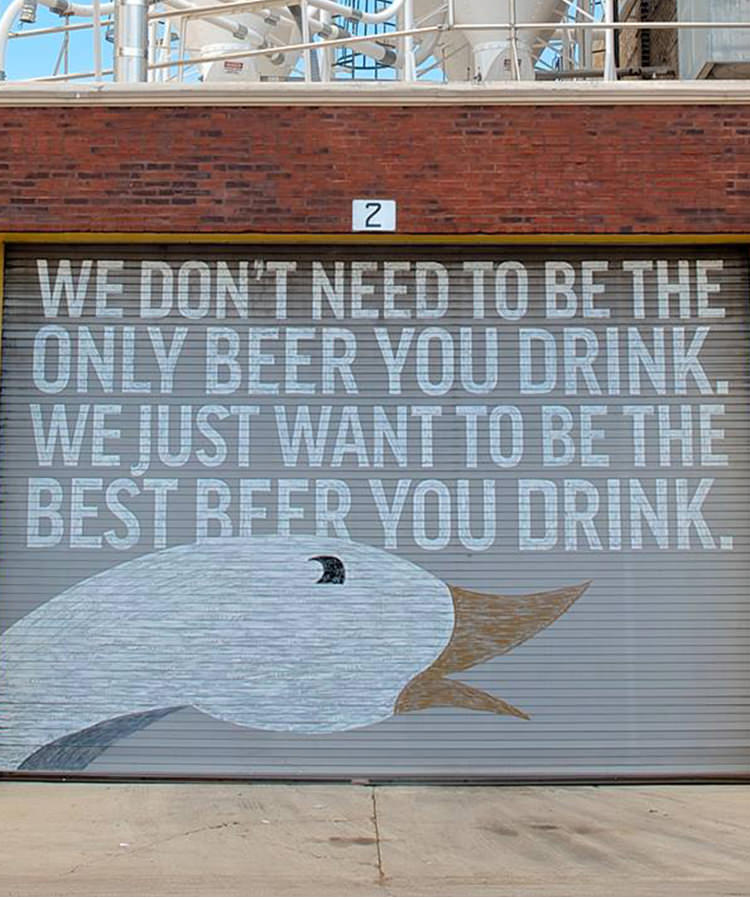On September 7, AB InBev’s “The High End” division — infamous among craft beer fans for buying up beloved independent breweries — announced it had laid off 90 percent of its sales force. The news quickly spawned stories with opinionated quotes and sarcastic Twitter posts about the 380 or so people now out of work.
One aspect of the announcement that was largely ignored, however, distills what a lot of craft beer fans have wanted to hear all along: AB InBev isn’t going to purchase any more independent breweries.
“Our plate’s full,” Felipe Szpigel, The High End president, told Forbes writer Tara Nurin. “We have 10 amazing craft partners. Our focus is going to be organic.”
Reid Ramsay, the owner of Beer Street Journal, broke the story and his High End source said something similar. According to Ramsay, Alex Medicis, the vice president of sales for AB InBev North America, explained that AB InBev is “rethinking the business model surrounding the High End, centering more on efficiency.”
So craft brewers and people who value independence should be happy about this news, right? As evidenced by the backlash from the Wicked Weed purchase, an AB InBev acquisition is essentially an open call for negative press. The reactions can be somewhat brutal, as seen by the comments on the Wicked Weed buyout that Brewbound rounded up. But the implications for independent craft breweries are more nuanced than initial reactionary comments might suggest.
There are more than 5,000 breweries in the U.S. According to Bart Watson, chief economist for the Brewers Association, 80 percent of Americans live within 10 miles of a brewery. As a result, it’s possible that craft breweries have hit a saturation point in terms of how many new independent labels can succeed.
Those smaller operations now have to worry about how AB InBev and The High End will leverage their newly refocused distribution network. The High End’s remaining employees will essentially be a well-funded super group dedicated to putting AB InBev labels front and center at every bar and beer store. Furthermore, AB InBev is developing a brewpub model for its brands, as per its new Miami brewpub made in collaboration with 10 Barrel Brewing, and the Golden Road brewpub planned to open in Oakland.
That will translate to fewer in-store sales at local breweries, and a less certain future for craft beer pubs serving as community watering holes — or coffeehouses, for that matter.
Craft beer fans are finally getting what they want. AB InBev isn’t going to buy out their favorite brands (for the foreseeable future at least). But is the alternative any better?
Trademarks are big business
Coming up with beer names is tough (unless you follow this great Twitter thread). The hunt for a perfect moniker can get small breweries into hot water with big, litigious corporations.
On September 7, Canadian brewery Picaroons Traditional Ales announced that it was putting its 11-year-old beer Dark and Stormy Night “to rest”after a long court battle with Goslings rum. The rum brand had the words “Dark N’ Stormy” and all its variations trademarked. So even though the hyperlocal Canadian beer had little to do with the rum, Picaroons simply couldn’t afford to win the case.
Taking it to court doesn’t benefit small companies because they can’t afford long trials and legal fees. Trademarks are but one more way for the bigger guys to go after the smaller guys.
Tech bros appropriate bodegas, miss the point
A new start-up called Bodega debuted what is essentially a vending machine on September 13. As The Verge notes, if this company and product were named anything else, it would just be another tech product claiming to solve a problem no one had in the first place. Instead, they chose gentrification as their brand identity, aligning their interests in opposition to small, independent businesses typically owned by immigrants and minorities in New York City.
Anyone who can go in a bodega and decide it needs to be made sterile and personality-free doesn't need to have money or influence
— Amanda Mull (@amandamull) September 13, 2017
Cultural sensitivities aside, the term “bodega” is hardly used in this context outside of New York. And this is essentially a vending machine, and a lame one at that.
Among other things, bodegas are where you can buy cold tall boys and 12-packs of cheap beer at 3 a.m. You can’t do that with a vending machine. You can’t buy lukewarm paninis and deli sandwiches after a night out from a vending machine. You can’t have a bodega cat stroll around and jump on all of the shelves in a vending machine.
I don't think they've ever been in a bodega.
If that thing can't sell breakfast sandwiches or beer then it's lost 75% of the bodega market
— David Sheppard (@OilSheppard) September 13, 2017
Let bodegas be bodegas. Stop trying to be the out-of-touch, real-life version of a Silicon Valley parody.
Will the bodega box sell loose cigarettes? Will it let me buy one beer from a six pack? Will there be penny candies? Fuck that bullshit
— Woe Eagle (@CheesusSlice) September 13, 2017
